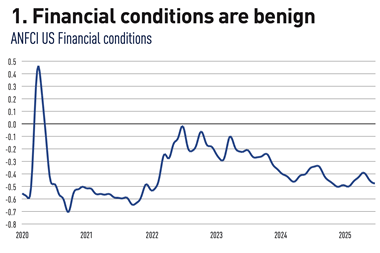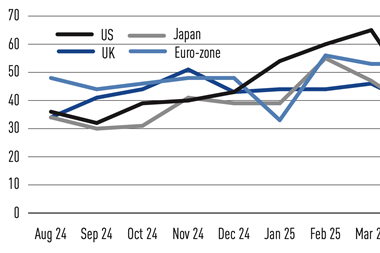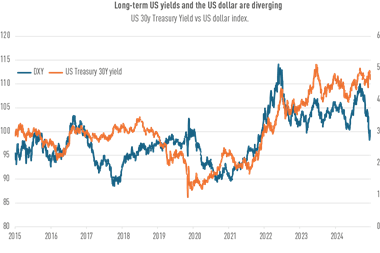What do you think is the most troubling geo-political flashpoint in 2013?
At any point in time there are multiple geo-political flashpoints that have the potential to develop into having a meaningful impact. I had thought territorial disputes were more likely to flare up in the South China Sea and so it did surprise me tensions escalated over the Diaoyu or Senkaku Islands between China and Japan. There are numerous other conflicts that could also flare up and have serious consequences – the Korean peninsula, Mali and Central and Eastern Africa, North Africa, the Middle East, and the list goes on. The key is to understand the root causes and potential direction of these conflicts. The main challenge from a fund management perspective is to assess whether there are ways in which to protect or reposition portfolios in the event any of these flashpoints develop to the point where they have a material effect on markets.
Is it sensible for people to regard 7% Chinese growth as ‘recessionary’ given that it is still so much better that elsewhere?
It is more a question of relativity and direction. The course China’s leadership has embarked on is to reposition and rebalance its economy from production to services. As some sectors slow, others will accelerate. However, any such transition carries execution risk in the timing of the relative growth of these sectors. This will be felt domestically and internationally. An example of the latter point is the effect the slowdown in the rate of economic growth appears to be having on resources markets worldwide. A decline in the growth rate to below 7% is quite possible and could also be exacerbated by cracks in the shadow banking system. The good news is that most of the senior Chinese officials I have heard speak recently recognise these issues exist. The direction of travel General Secretary Xi Jinping’s leadership appears to be following is also encouraging for the Chinese economy in the medium-term.
Japan is intriguing at the moment. Yen weakness, especially against the Korean Won, is an important determinant of Japanese competitiveness and, more broadly, the jury is out as to whether Abenomics will be successful – I am, however, hopeful.
Does government stimulus actually stimulate economies, or does it mainly stimulate markets? Is keeping stock markets high too much of a political priority?
We have seen a massive increase in the monetary base, with $10trn having been ‘printed’ by some of the major central banks since 2007.
The questions are what the multiplier effect is and will inflation follow?
I have seen some fascinating work by Professor Robert Barro of Harvard University who has estimated multipliers from stimulus being 0.4 after the first year and 0.6 after year two – this is in contrast to the historical Keynesian view that it is a multiple of more than 1 over the increase in the government outlay. From a purely macroeconomic perspective, this would suggest a muted benefit at best. Of course, in 2008 and 2009 we were faced with a collapse both in confidence and the financial system and one could argue that the growth in the monetary base and programmes such as TARP, TWIST and QE initially helped stabilise and normalise markets. One can also argue they have kicked the can down the road and governments have not resolved the fundamental underlying issues that need to be tackled for a broad-based and sustainable macroeconomic recovery. It is not clear to me we have a sufficient understanding of the transfer mechanisms, but there does appear to be abnormal price inflation in certain asset classes and another important consideration is currency devaluation. The velocity of money has also continued to trend down and so money supply growth has yet to feed through to broader inflation measures. This is a timing issue.
We were all told that one reason the 2008 crisis happened because we borrowed too much, but it transpired into a great way to make money since we were able to borrow as much as possible at low rates and invest that. Do you perceive a delicious irony there?
There has been a transfer of indebtedness from the corporate to the government sector. Fiscal profligacy among certain nations has in my view contributed to the ongoing crisis and uncertainty, especially in the West. I believe this raises a number of important questions we need to reflect on. Among these are that we are borrowing and spending monies today that our children will be repaying in future. Another is the quality of GDP – spending on transfer payments has a different long-term value to a country than investment in, for example, infrastructure.
Can a western democratic government running austerity policies ever survive more than one term in office?
This is a prescient question and one that is applicable globally, but perhaps particularly so in the Europe and the US. I recently read that Jean-Claude Junker, Prime Minister of Luxembourg, was quoted as saying “We all know what to do, we just don’t know how to get re-elected after we’ve done it”.
We have witnessed several changes in government leadership in Europe over the last few years. Of interest to me is that two of these resulted in elected officials being replaced with technocrats – Monti in Italy and Papademos in Greece. A challenge with a two, four or five year electoral cycle in democratic systems is that the legislative agenda must (almost) always have an eye to re-election as its political imperative. It is unclear to me whether there is sufficiently determined leadership to deal with what are serious structural and fiscal matters.
The good news is that certain of the structural challenges are being addressed in the Eurozone. However, the question is whether in a democracy where close to or more than half of the electorate are directly or indirectly employed by government, the fiscal challenges can be addressed. Is there sufficient leadership to address these imbalances? It is interesting to note that the Chinese have a ten year leadership cycle. Maybe, with this, they can be more effective.












